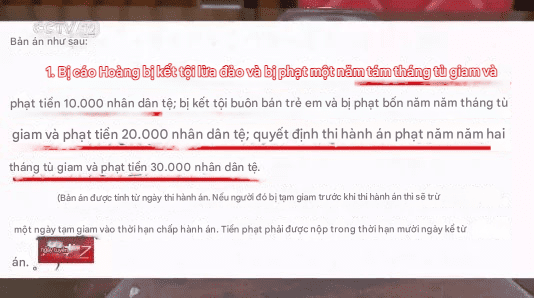Actions of a Young Woman Engaged in Shocking Donations
Recently, a shocking incident in Fuzhou, China, has sent waves through the internet. According to reports, a young woman named Huang Mumu (born in 1999) sold her two younger siblings to raise money… typically for various streamers online. With a price tag of 38,000 yuan (about 130 million dong) for each sibling, Huang Mumu utilized the money to “donate” – meaning sending money to support favorite streamers.

The case only came to light when police began investigating Huang Mumu for suspicions related to human trafficking. During a routine phone check, they unexpectedly discovered messages and documents linked to the act of selling her siblings. A deeper investigation revealed a sad reality: this young woman had repeatedly advertised her siblings for sale, solely to satisfy her desire for “recognition,” and “being praised” by online personalities.
Behavior Beyond Control
Ultimately, Huang Mumu was sentenced to 5 years and 2 months in prison for trafficking and selling her siblings. However, what is more concerning is the emotional and psychological harm inflicted on the children – it is not just about their physical well-being but also their mental health, as they might never be able to recover from such trauma.

The notion of “donating” (sending money to streamers) is certainly not new. Many viewers see live streaming as a form of entertainment, where donating is a way to show appreciation. However, when donations turn into a dependency, it can lead people to forget their boundaries – and unfortunately, some may even resort to heinous acts like selling their own siblings.

Many individuals have been “burned out” by the obsession with donations, which often leads to a desire to be recognized by their favorite streamers. In Huang Mumu’s case, she lost the ability to distinguish between reality and the online world. This young woman became deeply immersed in the livestream culture, to the extent that she neglected the very essence of human compassion and morality.
Source: Sohu




















